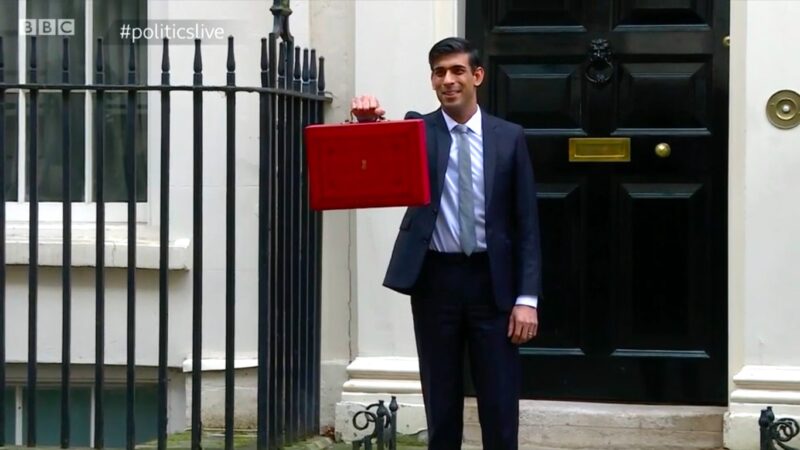
Rishi Sunak, who has been Chancellor for a mere matter of weeks, delivered a confident and assured performance at the despatch box this afternoon. The first post-election, post-Brexit Budget was dominated by measures to mitigate the impact of the coronavirus spread, amounting to a £30bn package, but it also splashed the cash on infrastructure spending over the next five years involving massively increased borrowing growing to £66.7bn in 2021-22.
First, let’s look at what is missing from the Budget. The huge omission was social care – Sunak must have misplaced that section of his notes because he didn’t mention it at all, despite the system being in serious trouble even before the coronavirus hit the UK. The number of confirmed cases has now risen to 456. There are currently over 122,000 vacancies in the sector, and almost a quarter of social care staff are on zero-hour contracts. The £500m hardship fund for councils will not meet needs. The electorate was promised a plan in December, yet this Budget did not even hint at one.
In the measures to address coronavirus, Sunak re-announced the move to offer statutory sick pay from day one rather than have people wait until the fourth day of their absence. But the level of SSP in the UK is far below that of comparable European countries, at just £94.25 a week, while those earning under £118 a week, gig economy workers and the genuinely self-employed do not receive anything. Enabling quicker receipt of benefits, which was promised, is insufficient and will be difficult to implement if DWP staffing levels drop due to coronavirus. As for the other changes made to our welfare system for the virus, there is no reason that these adjustments should not be made permanent.
Now, we turn to what did make it in. The Tories talked about a green budget, but that wasn’t delivered today. Sunak said the government would be increasing taxes on pollution, freezing the levy on electricity while raising it on gas, introducing a plastic packaging tax from 2022, and abolishing the tax relief on red diesel from 2022 – though rail and agriculture were exempted. There was also some extra money for flooding that had already been announced. Notably, the Chancellor revealed £27bn of investment in new major road schemes compared to just £1bn on green transport. The UK is currently on track to reach net-zero carbon by 2099, nowhere near the government target of 2050, and this Budget did not change that course.
The Budget didn’t do enough for day-to-day funding of public services, which is what most people are thinking of when they talk about austerity. The area that did particularly receive a boost was the NHS, which will come under even more strain now with the virus outbreak. There will be an addition £6bn over this parliament that Sunak claims will fund 50,000 more nurses, 50 million more GP appointments, and start work on 40 new hospitals – i.e. the manifesto commitments. And the immigration health surcharge (IHS) paid by migrants will rise from £400 to £624, to be extended to EU nationals, of course.
This fee levied on most UK visa applications was expected, as it was promised by the Tories in the general election. As heard during that campaign, it is unjust because those visa applicants will already be paying taxes that go towards the NHS as everyone else in the UK does. They are paying twice for NHS treatment. A higher IHS is also expected to worsen the staffing crisis, penalising those who come to the UK to work in the under-resourced NHS and exacerbating the situation whereby there are currently 100,000 vacancies.
In cash terms, the poorest tenths of UK households will be worse off as a result of this Budget, and the eighth and ninth deciles of the income distribution win most from it, the Treasury analysis shows. ‘Levelling up’ must not apply only to flashy infrastructure projects favoured by Boris Johnson, but to benefits and pay and living standards in a way that will immediately benefit the most vulnerable. The Budget can be interpreted as an “admission of failure”, as claimed by Jeremy Corbyn, when it comes to capital spending. But don’t be distracted by the big numbers – this is not a Labour budget.



More from LabourList
‘Why Starmerism isn’t Blairism – and restoring pride in towns is its key test’
Islington North CLP: Selection contest ‘undemocratic’ if Corbyn not on ballot
Read Keir Starmer’s speech launching Labour’s ‘core retail offer’ for voters